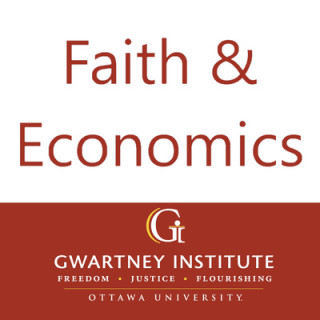

This week the Gwartney team talks about China's social credit scoring system. We recently went to a presentation in Witchita, KS where we saw Abigail Devereaux talk about this social credit system. She highlights the dangers of a social credit system and why it shouldn't be used in a centralized way. Private rating systems help us make great decisions, but this social credit system attacks freedoms. You can listen to our podcast and read her paper on this topic by following this link: https://papers.ssrn.com/sol3/papers.cfm?abstract_id=3286666
Timeline:
What goes into your Social Credit? - 3:00
Should we be worried? - 5:35
Debt Score - 10:00
426? You get to Travel!- 13:05
Aggregation of criteria leads to people as 'units' - 22:35
Mussolini - 27:00
Objective social Rating - 31:40
Socially valuable to the Region - 34:00
Building out? - 35:45
Lil trickle in the U.S? - 37:50
Quote of the Cast:
I'm just glad my score is higher than Nate's- Justin